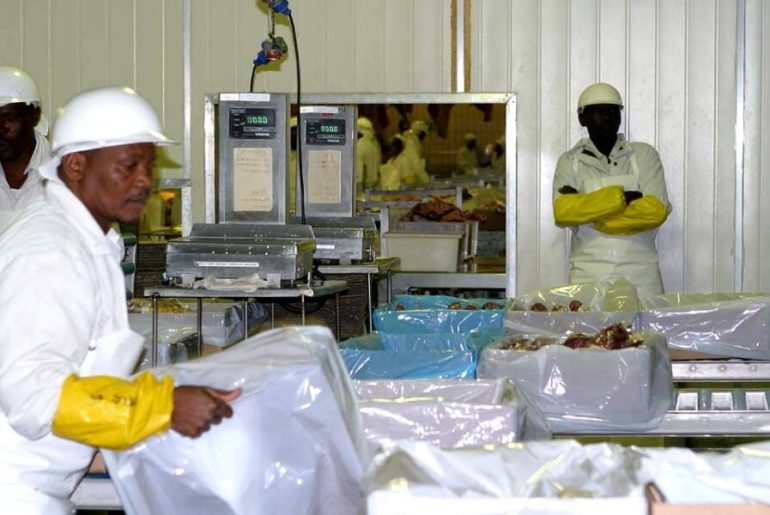The meatpacking industry and its employees have faced a difficult year because of the coronavirus pandemic. Hundreds of meatpackers were diagnosed with COVID-19 to the point where several of the big meat-producing chains, like Tyson and JBS, had to shut down for different amounts of time.
Because of this, employees’ families requested benefits from the companies where family members have died of COVID-19 complications, and workers that recovered from the disease rightfully applied for their workers compensation to cover medical expenses and wage losses. The problem? They got denied.
“That is the ultimate question: How can you prove it?” Nick Fogel, an attorney specializing in workers’ compensation at the firm Burg Simpson in Colorado, told NBC.
That has been the roadblock for many workers in and outside of the meat processing industry — how can you unequivocally prove that you got COVID from your workplace and not from somewhere else?
Since the pandemic started, at least 122 meatpacking workers have died of COVID-19 and more than 18,000 had missed work because they were infected or potentially exposed, according to The United Food and Commercial Workers (UFCW) International Union.
However alarming the numbers, the actual statistics might be much worse. Last month, Public Citizen sued the U.S. Department of Labor for lack of transparency on the meatpacking industry virus data, calling for the government to be “held accountable” for the continuous outbreaks in the facilities.
However, amidst lawsuits and public uproar, the meat packing industry giants have stayed quiet. And, as families and workers request monetary retribution for their losses, they are keeping their wallets shut.
Ben Roth, a local workers’ compensation attorney, told NBC that “meat-processing companies have an incentive to deny every claim because admitting they caused even one infection can expose the firms to liability for all workers contracting COVID-19.”
“That undercuts the argument that they want to make across the board: that you can’t prove you got it here and not at a grocery store,” Roth said.
Back in April, the Hispanic Caucus, led by Rep. Joaquín Castro (D-Texas), called on the Trump administration to investigate the working conditions of the meatpacking industry. The topic hit close to home for the caucus, as the majority of these workers, according to them, are Latino.
“Numerous companies across the meatpacking industry have not taken the necessary precautions they need to protect workers,” the lawmakers wrote in a letter to the administration. “While some companies were early actors in providing personal protective equipment, the callous inaction of others has reportedly led to multiple deaths and thousands of sick workers, as well as the death of two inspectors from the Department of Agriculture.”
The caucus explained that the government’s Defense Production Act, a law usually used in war time for national defense reactivated by the Trump administration, was intimidating workers into going to work in an unsafe environment. The law, which mandates that meat workers along with other essential workers “continue operating and fulfilling orders to ensure a continued supply of protein for Americans,” has left many with no choice but to expose themselves by going to their workplace.
The caucus also requested that the administration suspend “all executive orders threatening deportation or other removal actions against undocumented workers in these plants” given that many employees are undocumented immigrants and should be acknowledged for their front-line work during the pandemic.
“The virus doesn’t ask for papers, the virus hits everybody and we need to protect them,” said LULAC president Domingo Garcia. “And by giving [workers] temporary protective status, which President Trump can do by executive order, [he can] ensure that the food continues to flow to our grocery stores.”
Still, immigrants and workers’ rights defenders are calling for justice for the meat industry workers, and hope that compensation can be distributed to those affected and their families.

